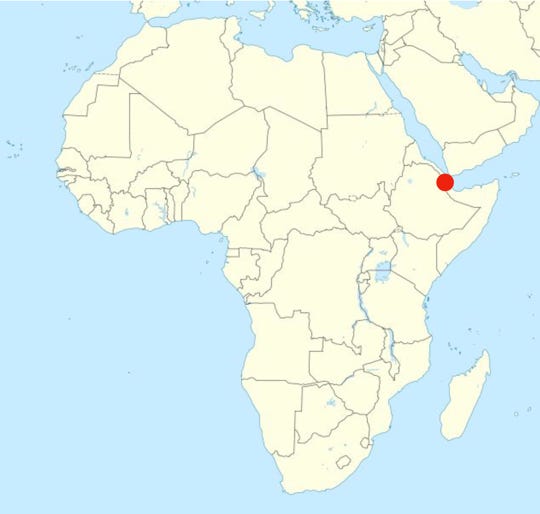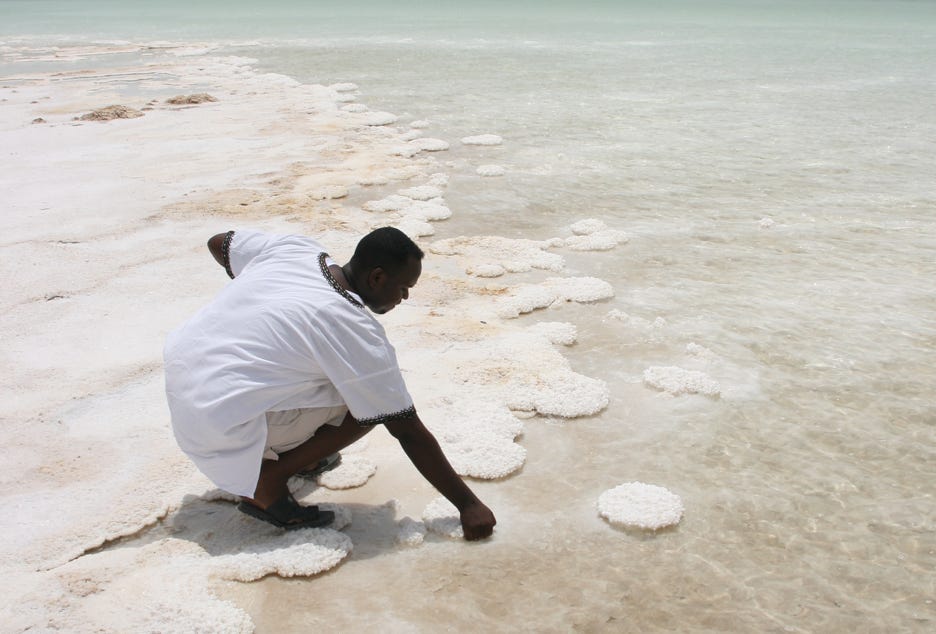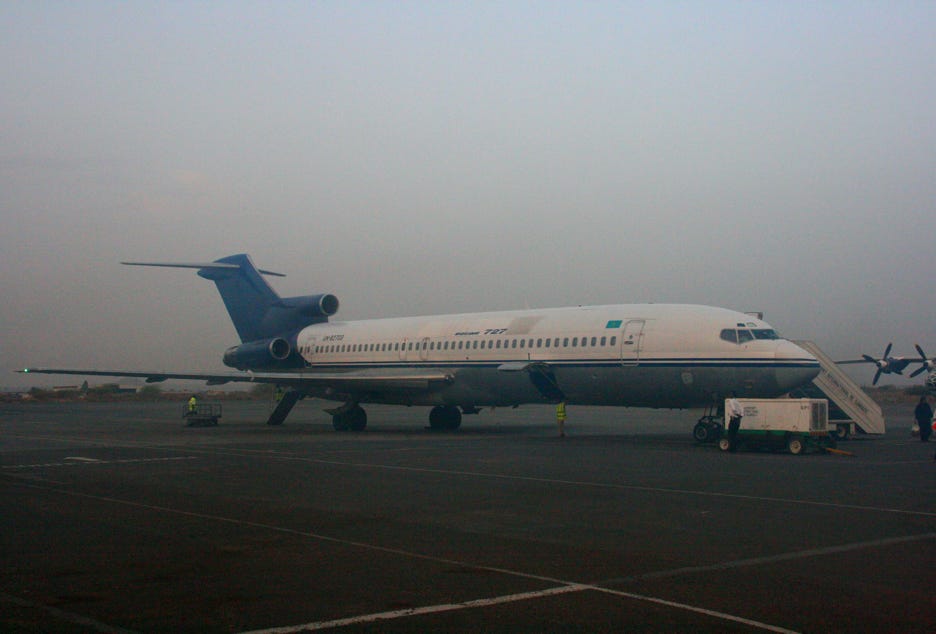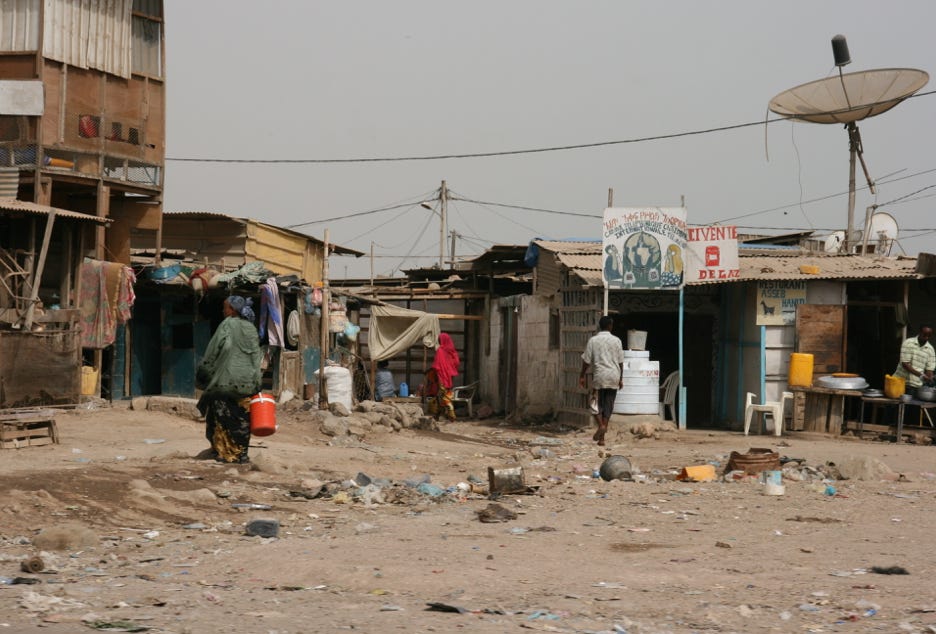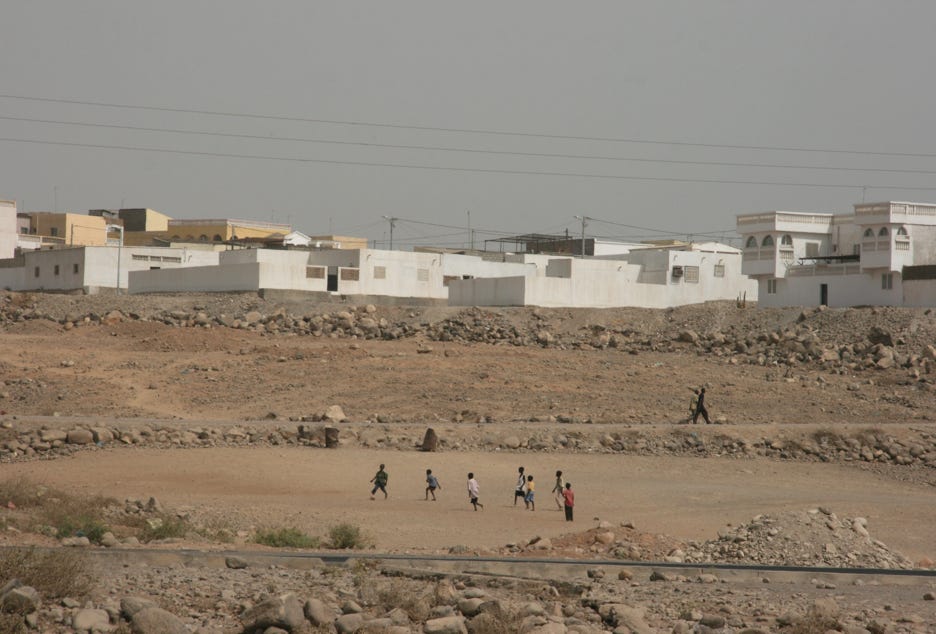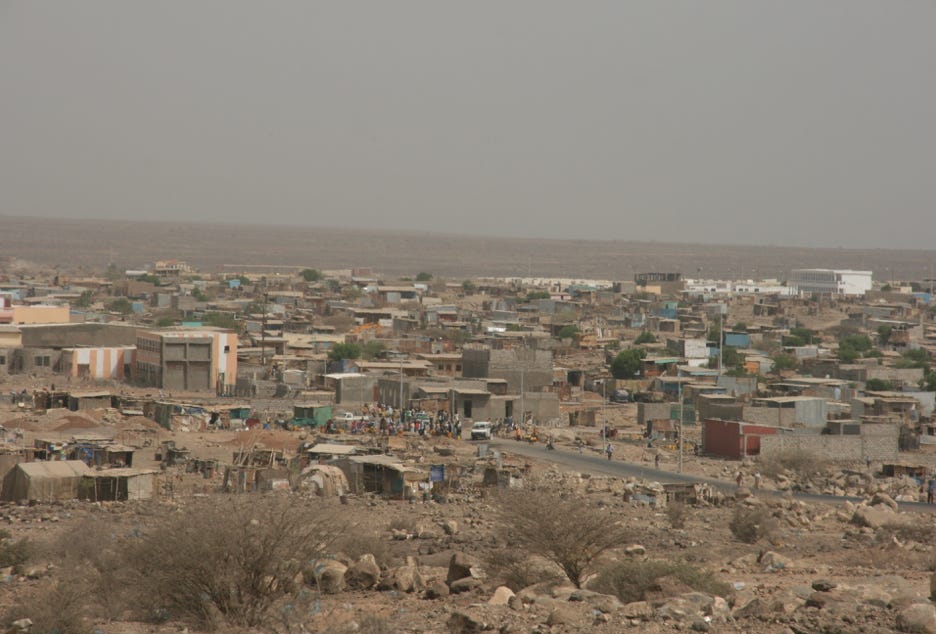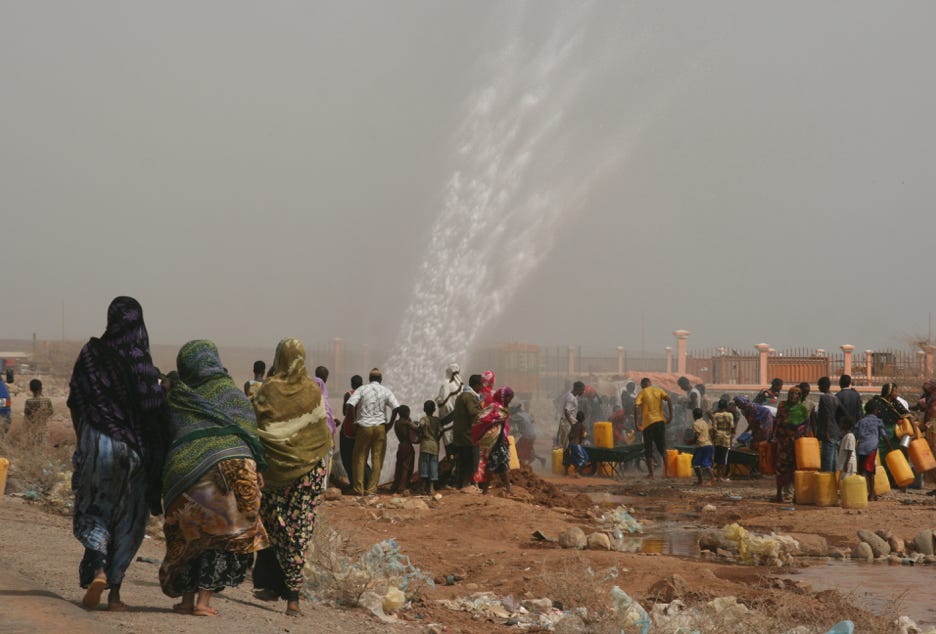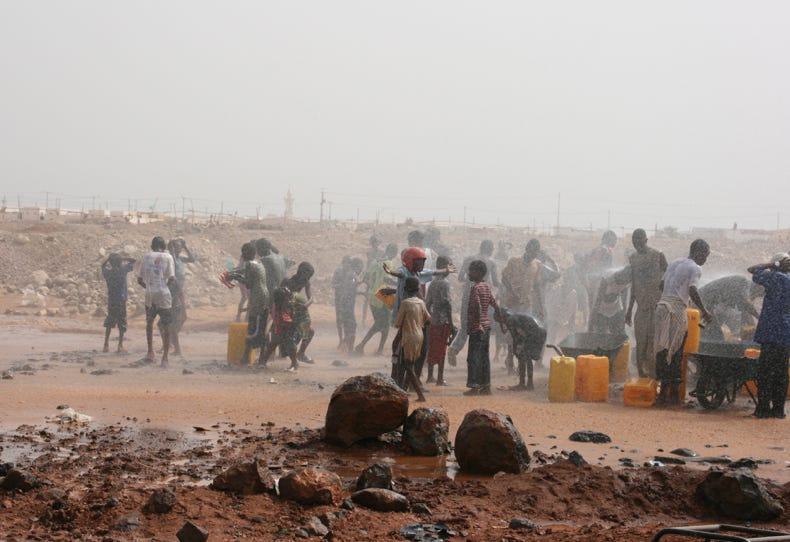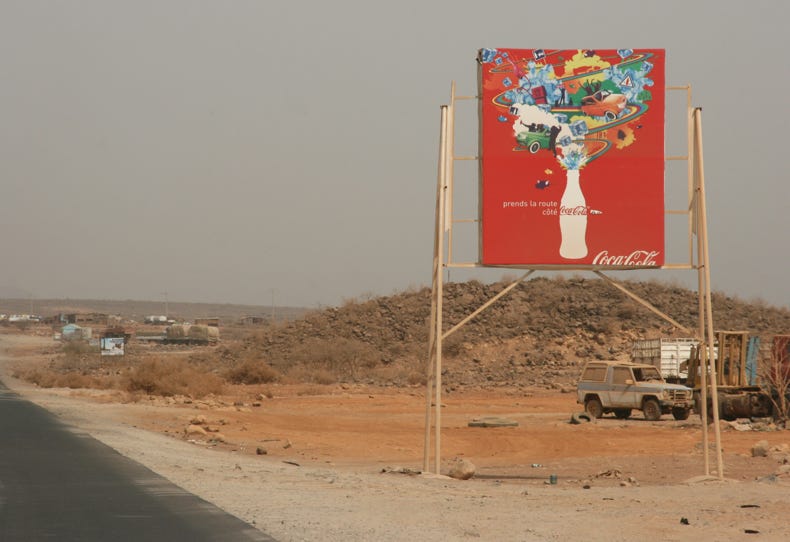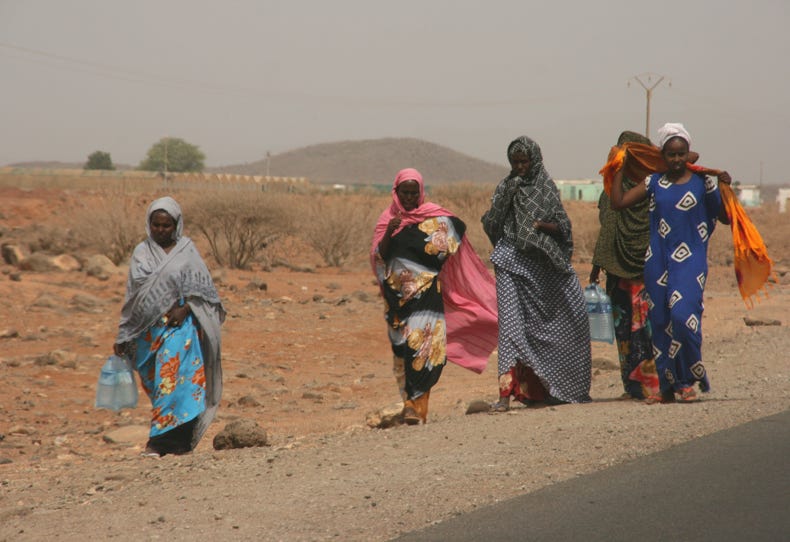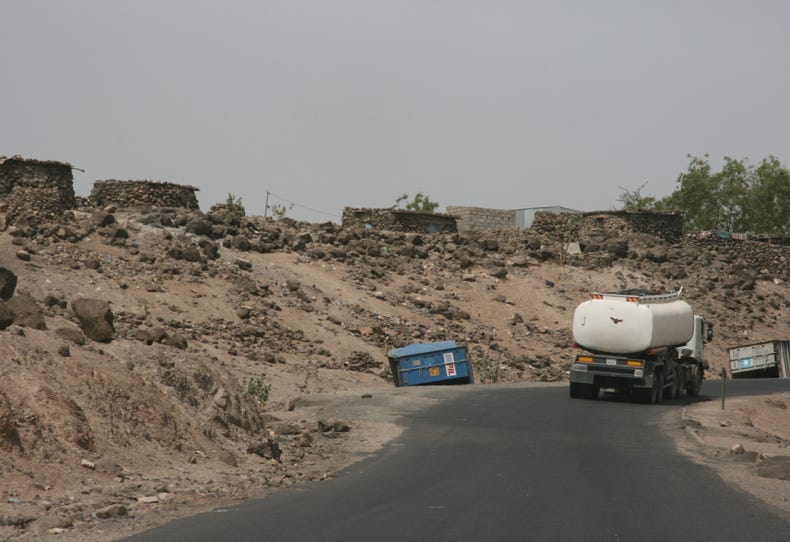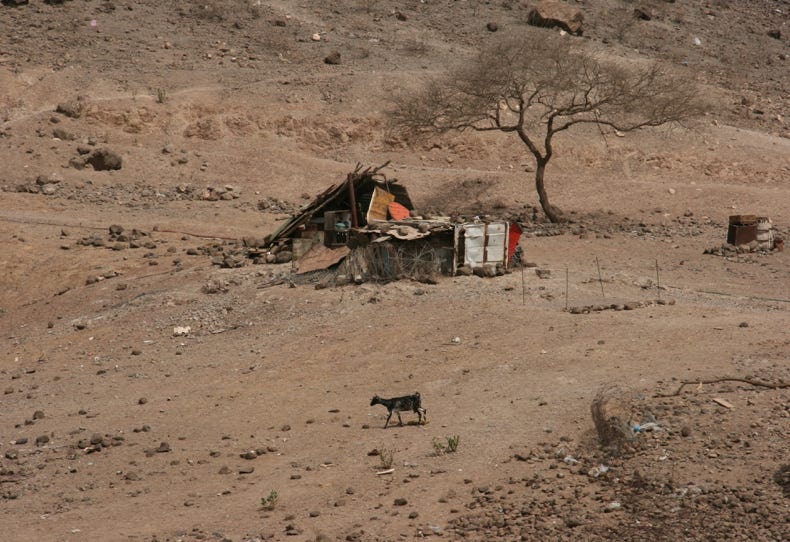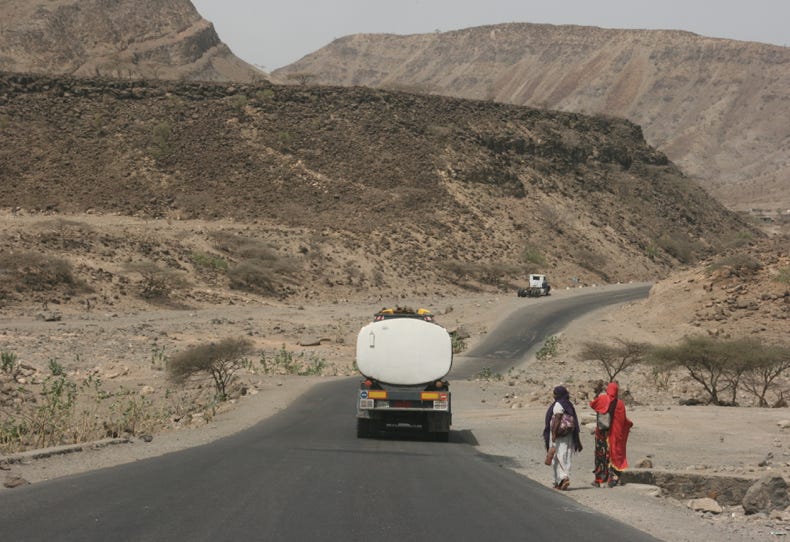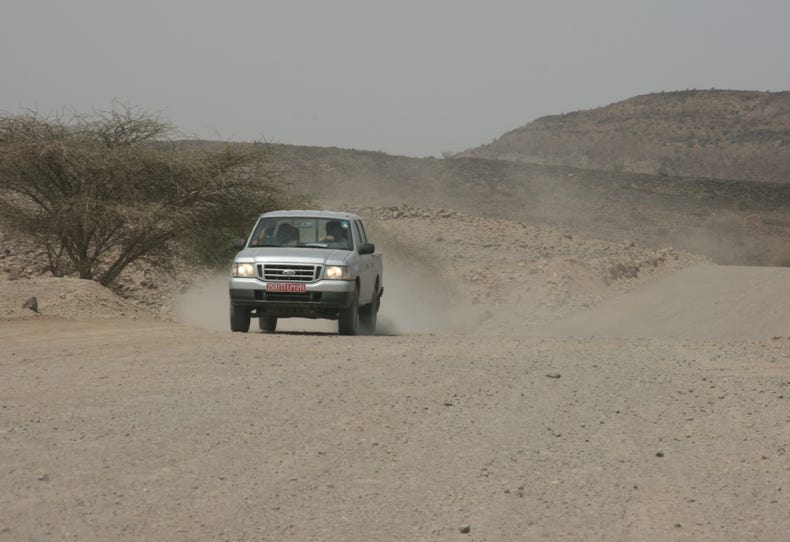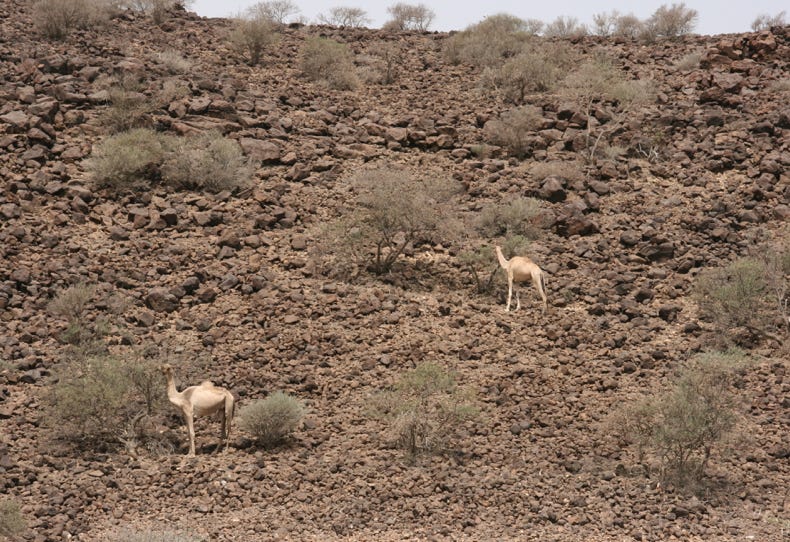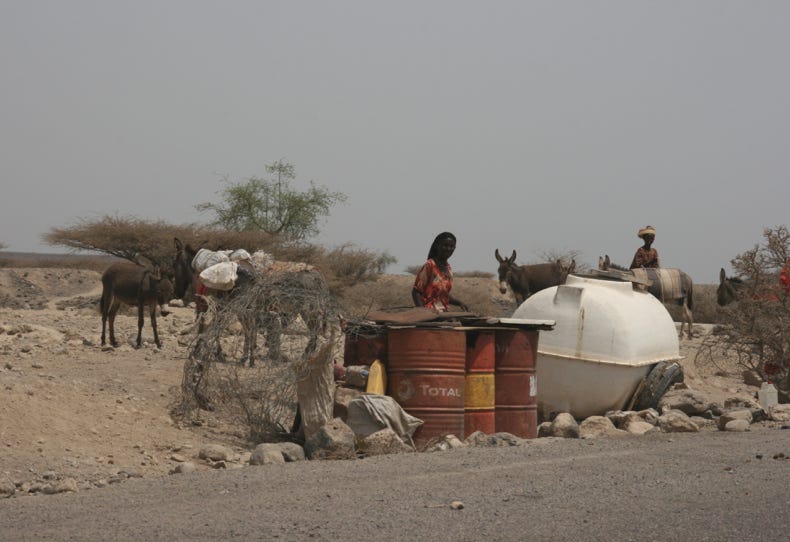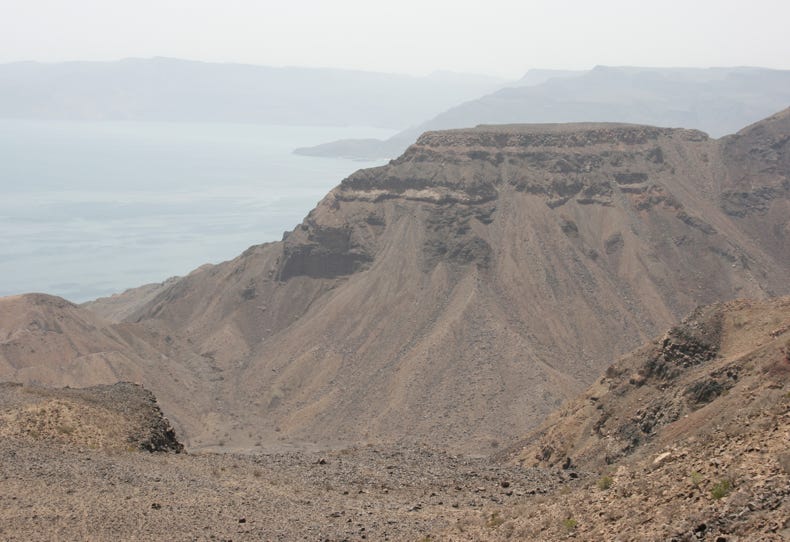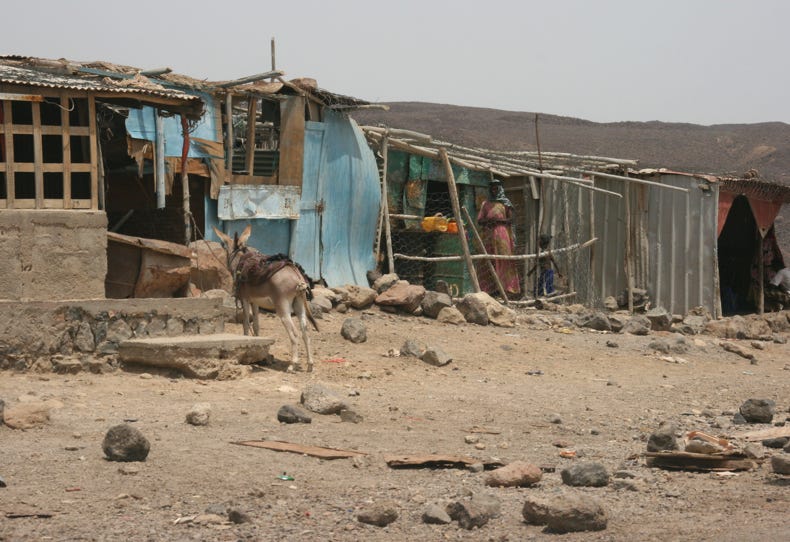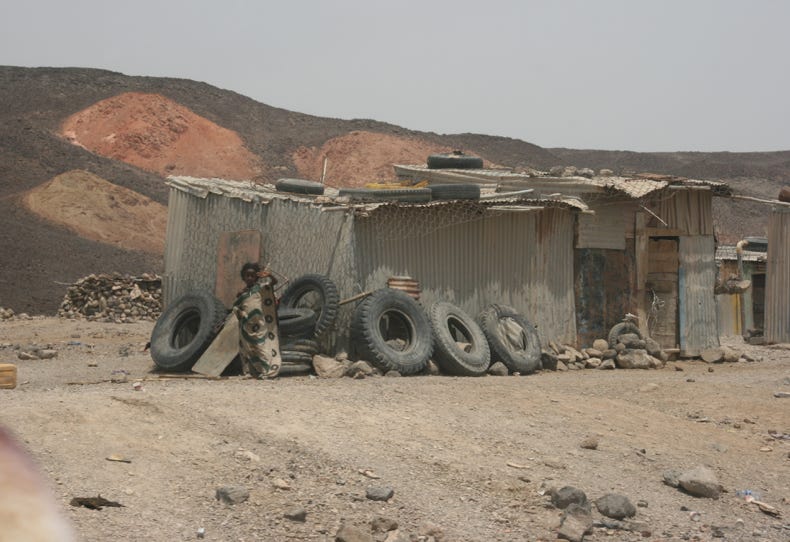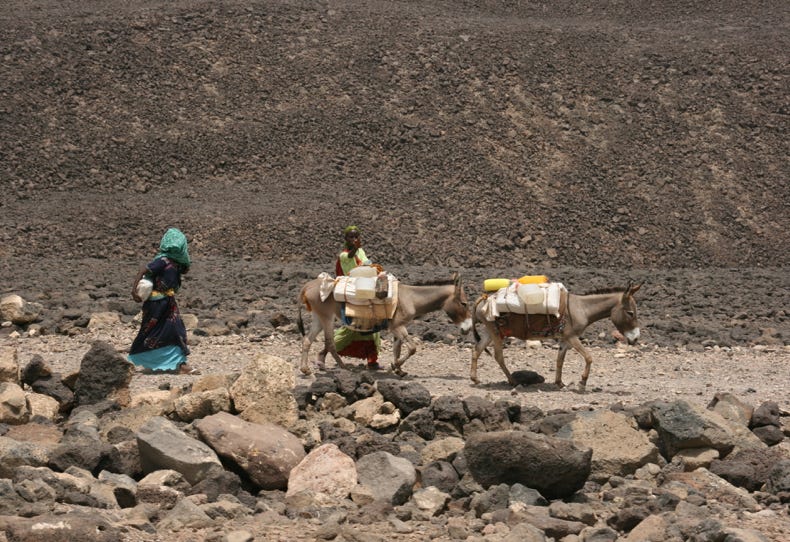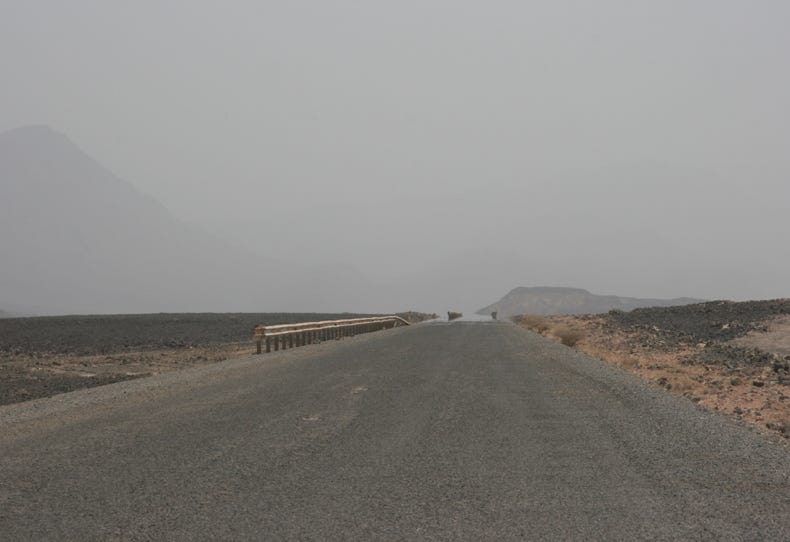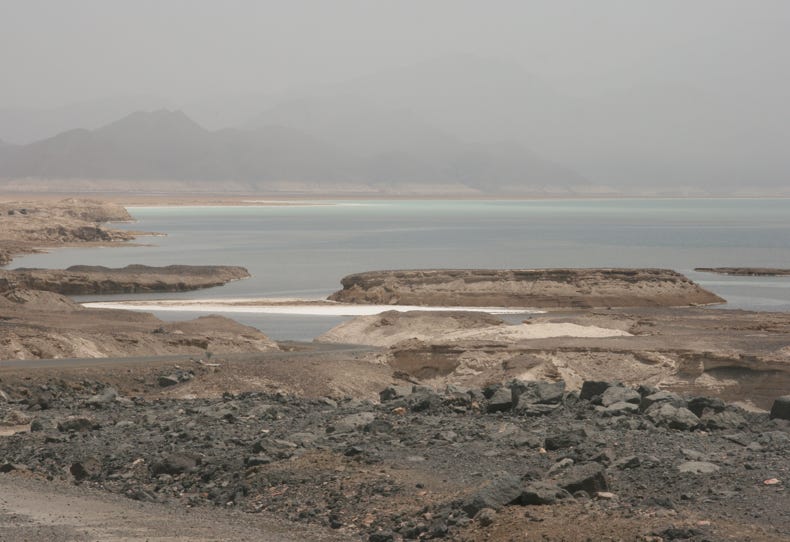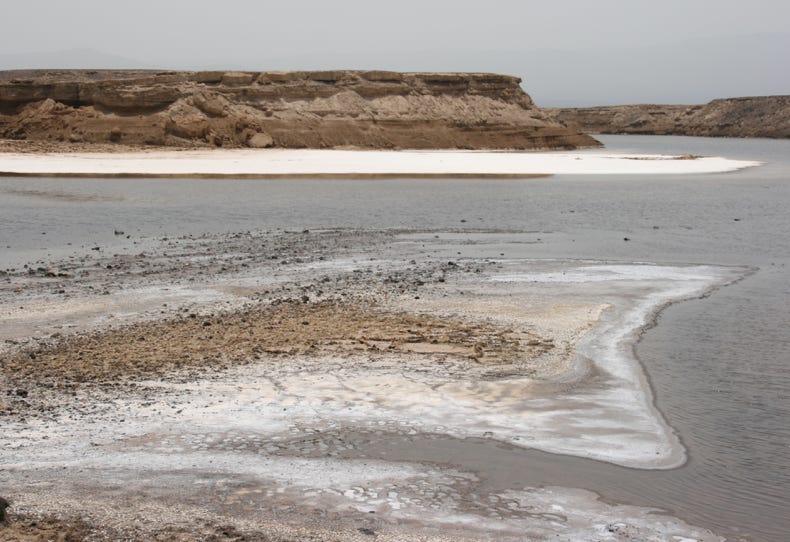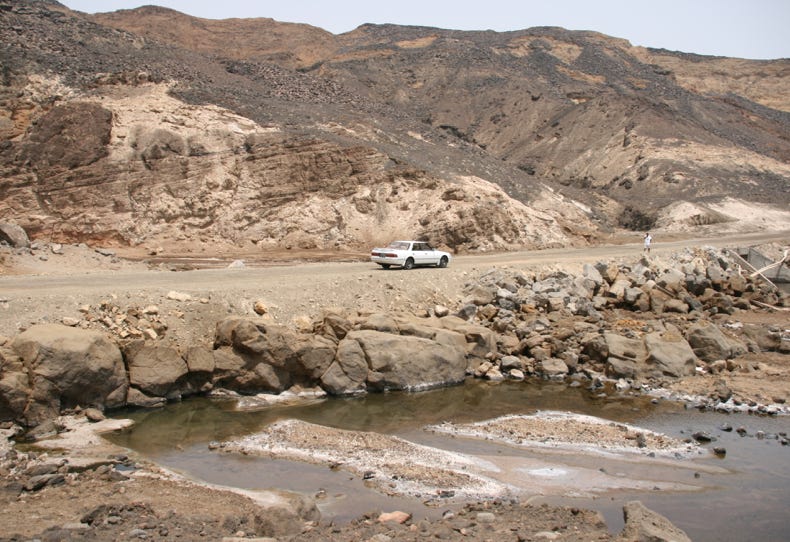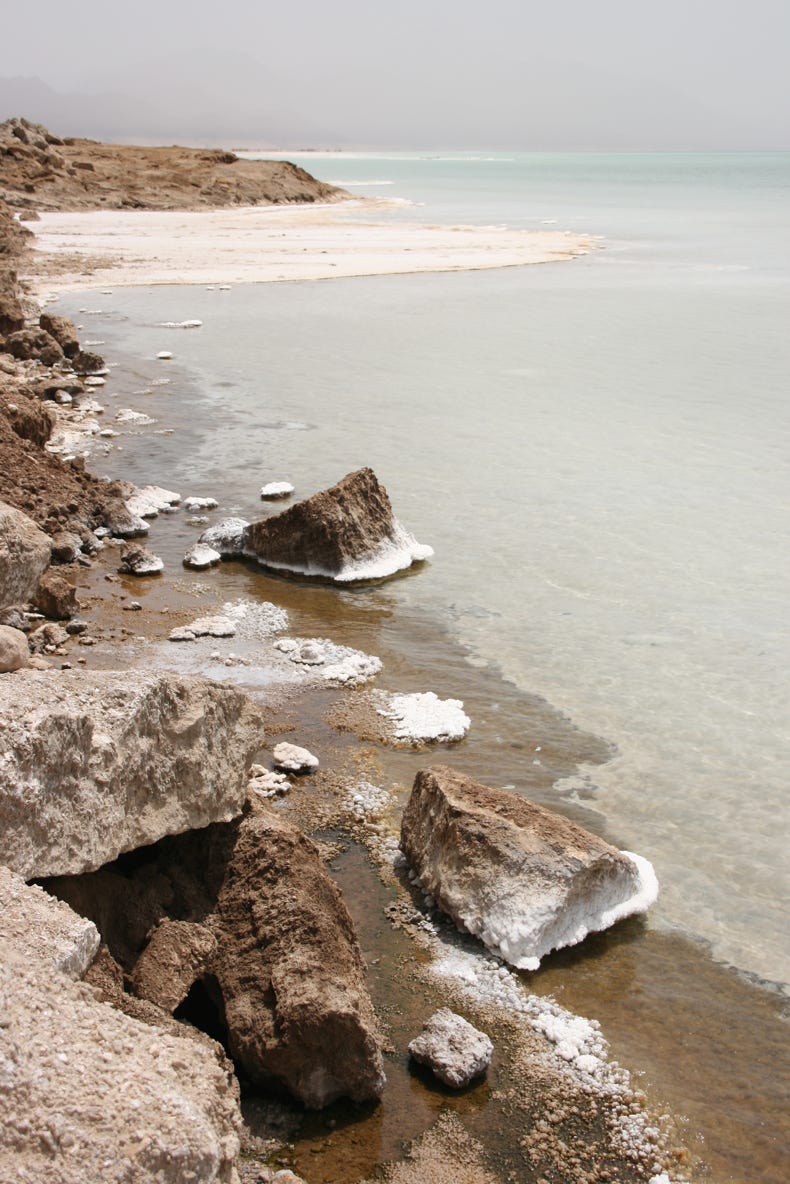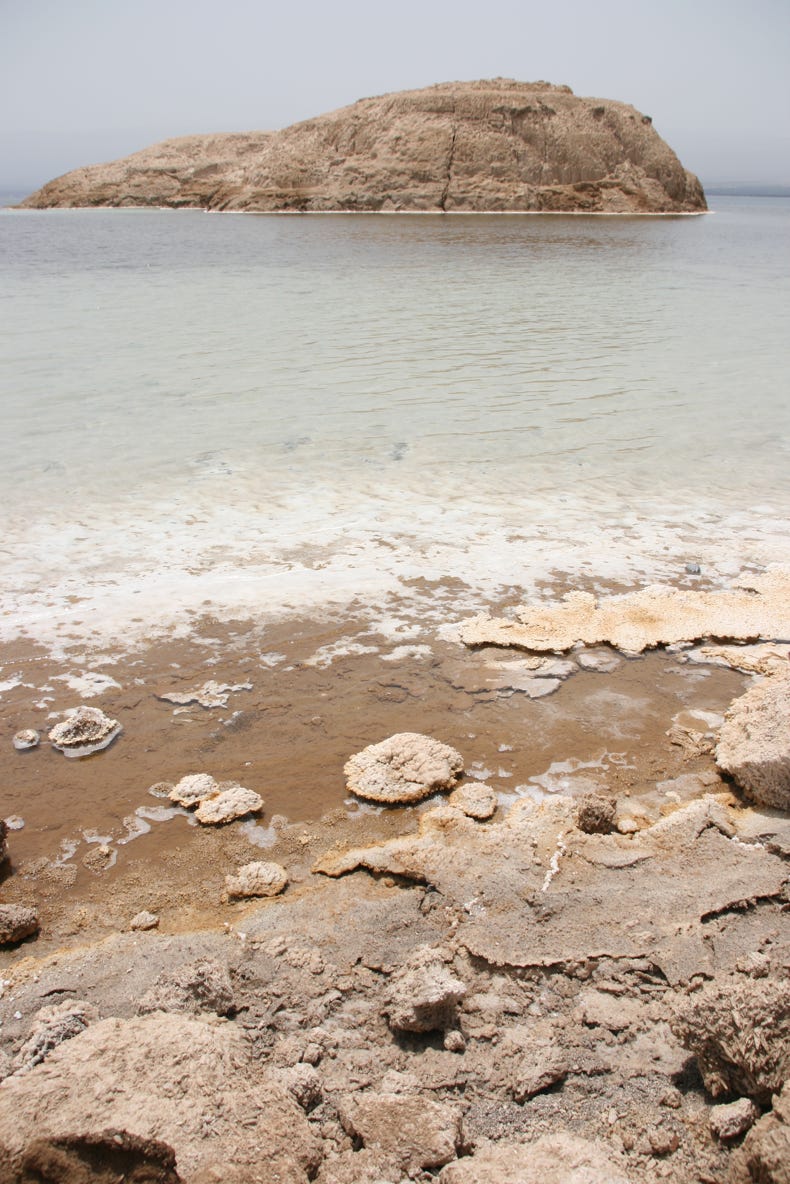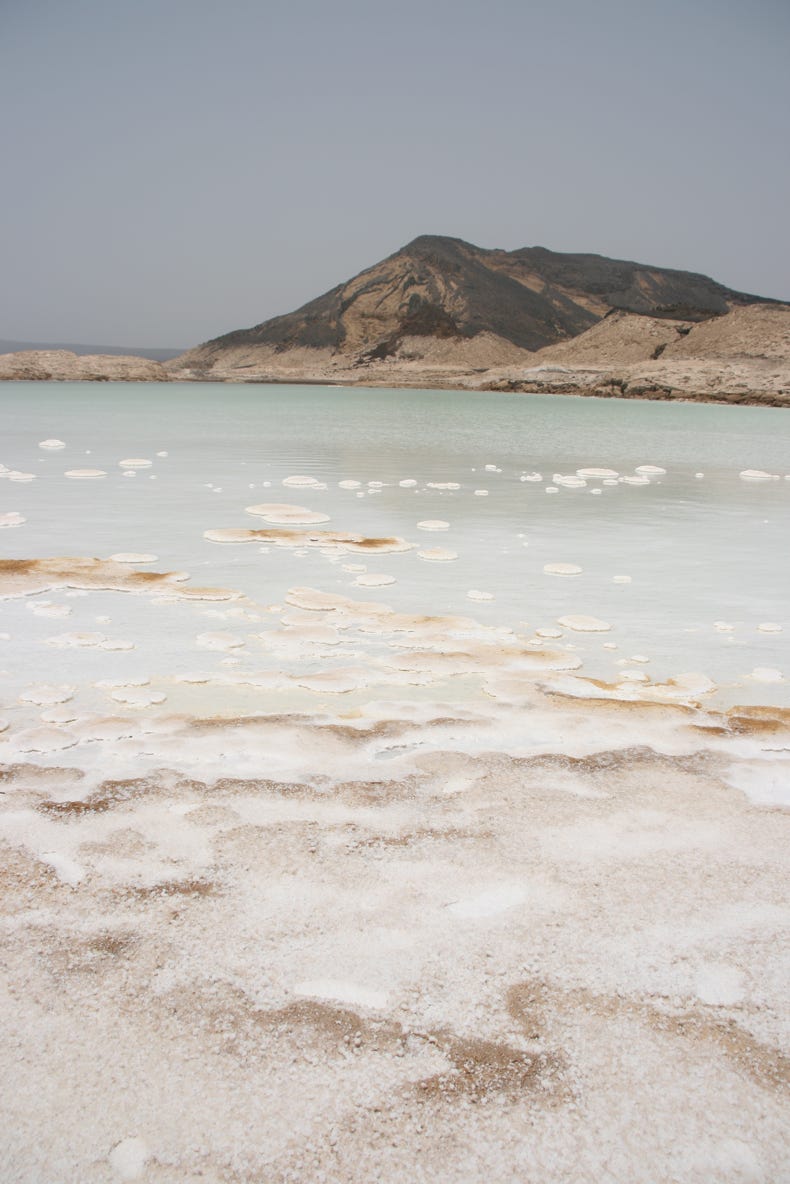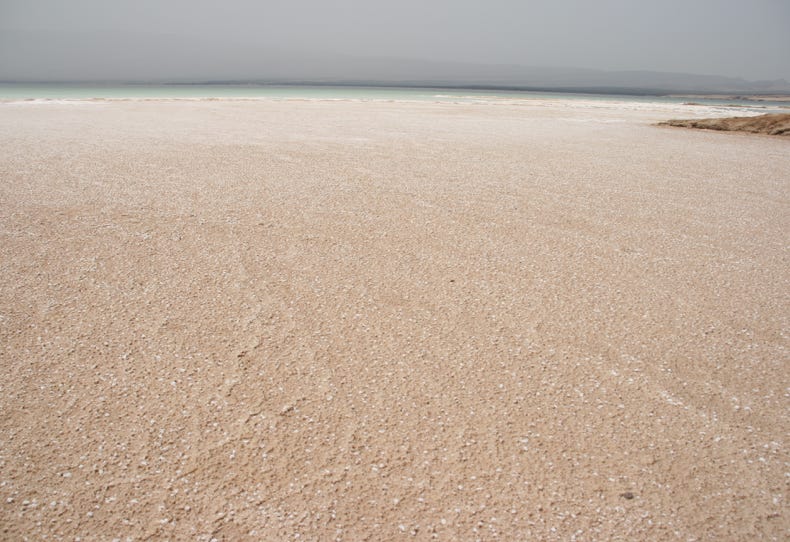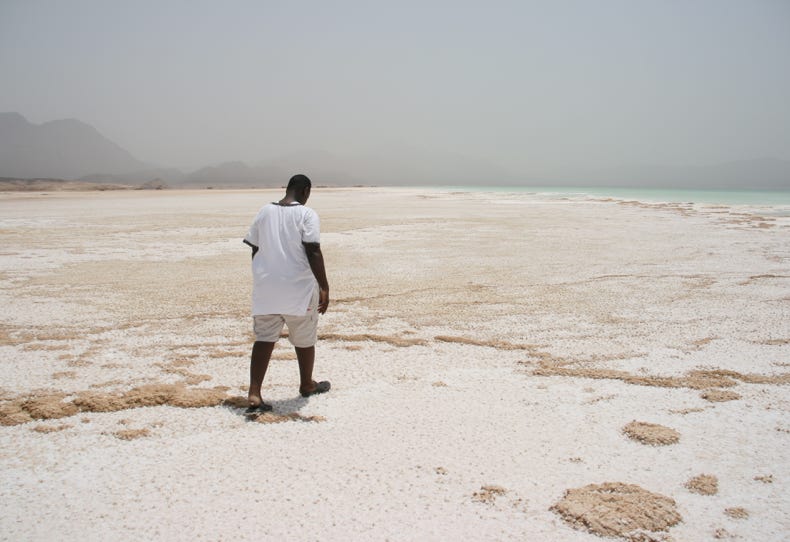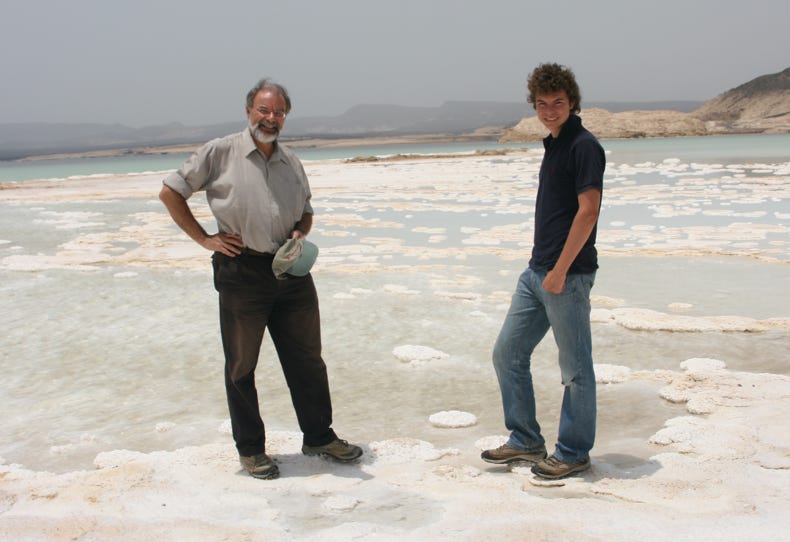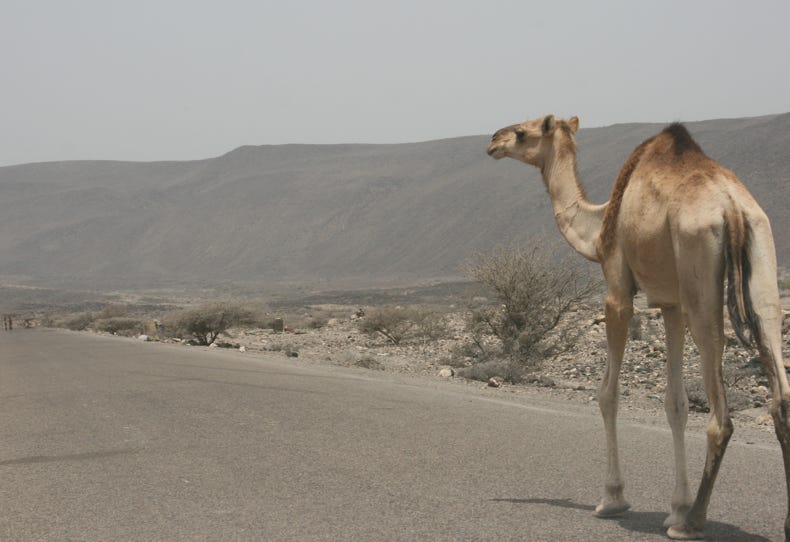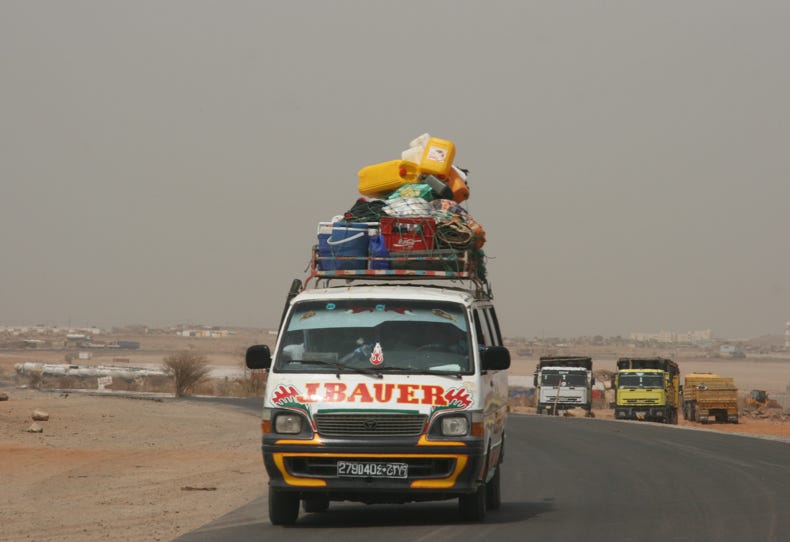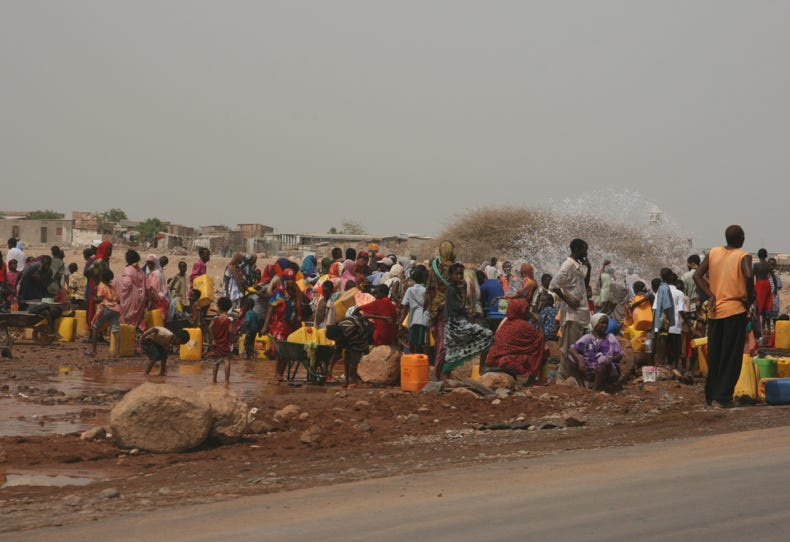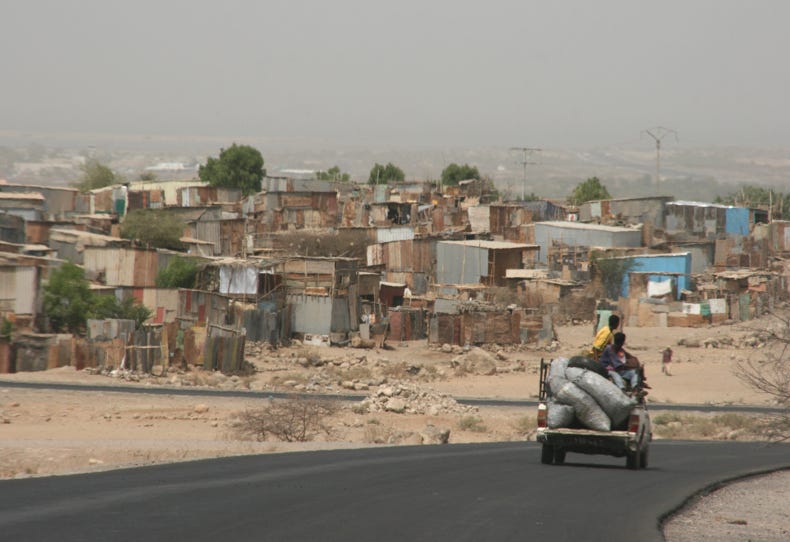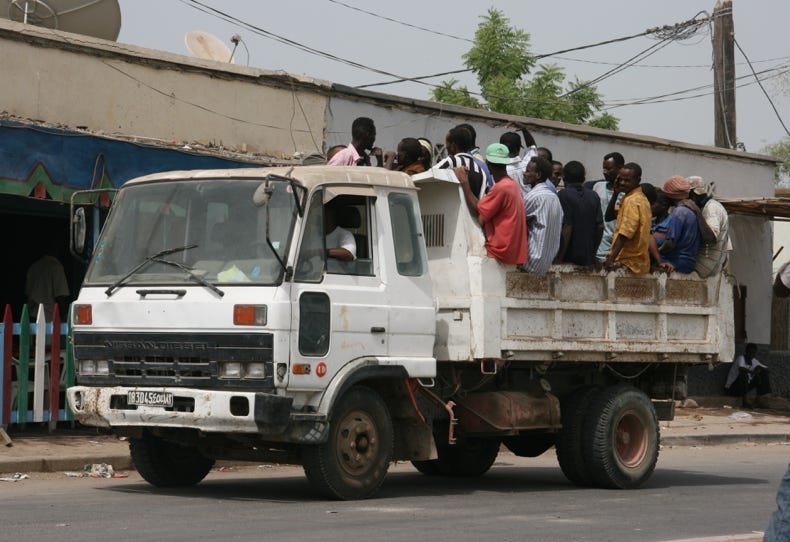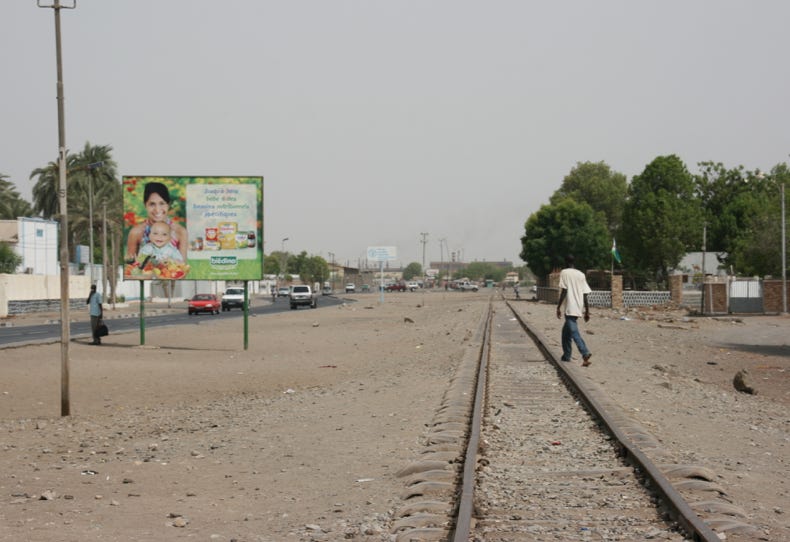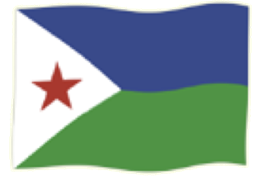
Lake Assal, Djibouti

I think I have discovered the perfect way to get tired – really, fully, seriously tired – just take a three hour flight that is scheduled to fly in the early hours of the morning, and get no sleep whatsoever all night! Our flight from Dubai to Djibouti was scheduled to depart at 3:00 am. Daallo Airlines requires that passengers check-in three hours prior to take-off, so we left our hotel in Dubai at about 11:30 pm, arrived at the airport at a few minutes before midnight, and began the long check-in process.
Our plane was a vintage Boeing 727, parked at a remote stand at Dubai Airport that required a long trip in a bus from the terminal. The plane had been wet leased from a company in Kazakhstan. It had a Kazakh registration (UK-B2703) and a Kazakh flag on the side, but no name of any airline anywhere on the plane. The pilots were Kazakh (or maybe Russian), and the members of the cabin crew were mainly Kazakh with one Djiboutian also present to make in-flight announcements. The flight, which lasted three hours, departed an hour late, and therefore we arrived in Djibouti at 6:00 am (when the photo of the plane to the right was taken) rather than the scheduled 5:00 am. Even though no food or drink was served on the flight, it was not easy to grab any sleep, and we arrived in a pretty tired state.
Most of the passengers on our flight transferred to a connecting flight into neighbouring Somalia , straight to a waiting Ilyushin Il-18, so I was more than a little jealous! Because so few passengers were terminating their journey in Djibouti, the interior of the airport was a fairly quiet and calm as we waited for our baggage, apart from the swarms of mosquitoes that had stirred themselves into action with the arrival of the day’s human victims. The outside of the airport terminal was not so calm, however; just after we arrived a squadron of Mirage fighters taxied on to the runway and took off, accompanied by a large aerial refuelling tanker. It was obvious that we were entering a zone of considerably heightened tensions as we came into the Horn of Africa.
We arrived at our hotel at about 7:30 am, having had virtually had no sleep whatsoever. I was hungry and thus had a quick shower to freshen up and then went to breakfast; Andrew just lay down on his bed and went straight to sleep. Breakfast confirmed the importance of Djibouti as a centre of peace-keeping operations in north-east Africa, as most of the other guests in the hotel proved to be German Army peace-keepers, all dressed in full camouflage gear, even in the hotel restaurant. It was a compelling reminder that Djibouti occupies a key strategic position at the narrowest point of the entrance to the Red Sea. It is thus no wonder that powerful nations such as France and the US go to such great lengths to remain friendly with Djibouti.
It was not possible for Andrew’s rest to last for long, as we had not returned to Africa in order to sleep, but to explore! Because of our delayed arrival in Djibouti (my original plans had us on a flight from Eritrea that was scheduled to fly in yesterday), today was to be our only full day in Djibouti, and my aim was to travel 110 kilometres west of Djibouti City, inland to Lake Assal, the lowest point on the African continent.
I quickly made arrangements to find a car and a driver, and we agreed to depart at 9:00 am. The driver was a local school teacher who was currently on his three month long holiday for summer. The subject he taught in school was French, which we used as our language of communication for the drive as he had no English whatsoever. The drive through the Djiboutian countryside revealed that this former French colony was quite different from either of the neighbouring countries of Ethiopia and Eritrea, with Djiboutian people displaying much more colourful local dress, there being considerably stronger influence of Islam, and the level of economic development being somewhat higher.
Lake Assal is a huge salt lake, formed in the collapsed crater (caldera) of an extinct volcano, known as the Ardoukoba Volcano. It was approached by driving across an extensive lava field. It is known to be one of the hottest places on earth, being over 500 feet (about 155 metres) below sea level and surrounded by high hills. Perhaps we were lucky in that respect today, as it was “only” 48 degrees Celsius when we were there. When we arrived at the lake, we walked out on to the salt flat to the edge of the water, rejoicing in the crackling sound of the salt under our feet. Predictably, the water was very hot, and the taste was probably the strongest salt water I have ever tried. The taste of the rock salt was also something amazing to experience, as the salt was rock hard and highly concentrated; a small piece just 3 millimetres in diameter took several minutes to dissolve in my mouth, all the time emitting an extremely strong salt flavour.
We returned to Djibouti city at about 2:30 pm. To be honest, despite the fascinating arid scenery we were driving through, I was finding it hard to stay awake, perhaps a combination of the dry heat and the lack of sleep. Nonetheless, I did manage to stay away sufficiently to get a few more photos to provide some memories of the scenery we were seeing.
When we returned to our room, Andrew and I started discussing what we might do for the rest of the afternoon, but we both quickly fell asleep and before we knew it, it was 7:30 pm, dark outside, and time to have some dinner.
If it had been only Andrew who had fallen asleep, I would have dismissed it as a lack of stamina or simple adolescent lethargy, but as I also fell asleep involuntarily, I know that what we were dealing with was a serious a case of genuine fatigue.
